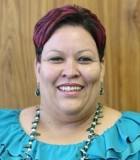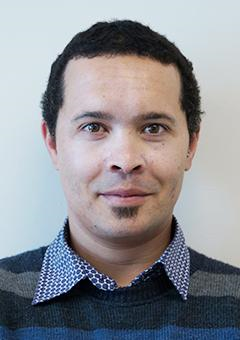Presenters: Dr. Maggy Beukes-Amiss, Director at the Centre for Open, Distance and eLearning (CODeL) University of Namibia and Mr Andre Joubert, Coordinator; Digital Media, Centre for Open, Distance and eLearning (CODeL)
Format: One hour webinars Thursday 13 July at 1 pm (SAST)
Time converter at worldtimebuddy.com
The advent of new technologies in education for teaching and learning activities is not without challenges. One of these challenges is the pitfall of using new technologies without adding much value to the teaching and learning process. Using Dr. Ruben Puentedura’s SAMR Model, this challenge involves using technology to simply substitute for what has always been done before technology came into the equation. This results in mere enhancement of the teaching and learning activities.
For technology to add value to the teaching and learning processes, it should have a transformative impact. In its effort to maximise the impact of technology at the University of Namibia, the Centre for Open, Distance and eLearning (CODeL) opted to adopt blended learning using the Flipped Classroom approach. Flipped Classroom involves inverting the teaching process whereby teaching content is delivered prior to class time so that student activities take place in the classroom.
This webinar describes how CODeL utilises a lecture capturing tool called Panopto to implement the Flipped Classroom blended learning approach. The webinar seeks to answer the following questions:
- How does the learning context of the University of Namibia render itself to the Flipped Classroom approach?
- What are the opportunities and challenges that educators and students face regarding online and blended learning at the University of Namibia?
- What lessons has CODeL learned from initial Flipped Classroom implementation?
Dr Maggy Beukes-Amiss is a Namibian with over 20 years’ experience in teaching Library and Information Science as well as ICT related subjects at the University of Namibia, within the Department of Information and Communication Studies. She has a PhD in Computer-integrated Education (CiE) through the University of Pretoria, South Africa. She served as Head of Department (2005-2007) and again for another three years (2012-2014). Currently she is the Director of the newly established Centre for Open, Distance and eLearning (CODeL) at the University of Namibia. She is also a Council member of the University of Namibia, the highest decision making body of the University.
She is particularly passionate about eLearning capacity-building activities through the use of open source software packages and research focusing on eLearning technologies and activities. She is a member of the eLearning Committee of the University of Namibia and used to serve on the Namibian Open Learning Network Trust (NOLNet) eLearning Committee as Coordinator of eLearning activities within the entire country for over seven years, until 2011. She has been involved in a number of eLearning capacity-building activities in Namibia and various countries in Africa on behalf of NOLNet, GIZ and GESCI.
She served as Chairperson of the eLearning Africa 2013 Local Organising Committee and is a reviewer of conference papers for eLearning Africa and Online Educa Berlin, on behalf of ICWE GmbH, Germany, 2011 to date. She is a certified ICDL trainer (2007) and an Expert of New Learning Technologies (2005) through TeleAkademia of Furtwagen, Germany.
She has served as an ICT Steering Committee member of the ICT Steering Committee of the Ministry of Education in Namibia since 2005 and in addition, has been the Deputy Chairperson of the ICT Steering Committee since 2012. She was a contributor of the national ICT Policy and implementation plan, Tech NA!. She was a Commissioner and then Chairperson of the Board, of the regulator Namibian Communications Commission (NCC), 2006-2011. She was also appointed as the country’s eminent e-Content expert through the World Summit Award (WSA), from 2006 to date. She served as a Technical Quality Assurance Committee (TeQAC) member for the African leaders in ICT (ALICT) blended learning programme of GESCI, as well as the etutor-coordinator (training and coaching) e-tutors of the ALICT programme, 2011-2014. Another highlight in her career path is that she was the Chairperson of the Telecom Namibia Board for a 3 year period until September 2016. She has recently (April, 2016) been rewarded as “GIZ Ambassador for quality in Digital Learning”.
Mr. Andre Joubert is a Namibian with 7 years’ experience in Advertising and Multimedia workflows. He has a BA degree in advertising from the University of Namibia. Currently, he is the Coordinator: Digital media at the Centre for Open, Distance and eLearning (CODeL) at the University of Namibia. Andre and his team are also tasked with the campus wide roll out of Panopto, a lecture capture software which allows lecturers to record content for their courses, anywhere, anytime.
This webinar has ended – please view this site for past resources



